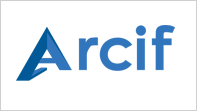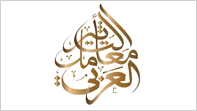Social justice and its role in achieving economic security in the Libyan society
DOI:
https://doi.org/10.51984/johs.v22i1.2460Keywords:
Moral Corruption, Social Media, Electronic Crimes, Values System, Crimes Of Defamation And Cyber Extortion.Abstract
The crimes of defamation and cyber extortion that are published on the Internet are among the biggest manifestations of moral corruption in society today, and despite the difference in determining an acceptable definition of the materials being published, there is a factor that can be relied upon to determine their meaning, which is that these crimes include content that indicates a violation of sanctities and values morality in society. Accordingly, this study aims to know the repercussions of moral corruption on the value system in Libyan society, and to know the true goals behind what is published in the pages of defamation and cyber extortion, and to reveal the psychological and social effects of defamation and cyber extortion crimes on the values of society. To achieve this goal, the concepts related to moral corruption and crimes of defamation and cyber extortion were studied, as well as theoretical trends in the interpretation of crimes of defamation and electronic extortion as a manifestation of moral corruption. The study relied in its methodology on the descriptive approach. Thus, the main question that revolves around the study problem is: What are the implications of moral corruption on the value system in Libyan society?
The questions of the study were answered through the results of the exploratory study of the pages of electronic defamation and extortion that were identified in three pages, where the study concluded that the Libyan society in general and the society of Sabha city in particular, is a conservative society that still adheres to the agreed-upon values and standards and the percentage of moral corruption is not great, and finally the paper suggests some recommendations that concern with the preventive treatment to alleviate this problem and prevent its occurrence in the Libyan society.
Downloads
Downloads
Published
Issue
Section
License
Journal of Humanities Policy on Intellectual Property and Plagiarism
1. Commitment to Intellectual Property and Ethics
The Journal of Humanities (JOHS) is fully committed to respecting intellectual property rights and aims to protect the originality and authentic work of authors who submit their manuscripts for publication. The journal takes a firm stand against articles that contain any form of plagiarism and emphasizes the need for all researchers to adhere to the highest ethical standards in scientific research.
2. Anti-Plagiarism Policy
The journal considers plagiarism a serious violation of academic ethics. Therefore, authors must ensure that their work is original and not plagiarized, and that any use of external sources is properly cited and documented according to correct academic standards.
-
Actions Taken: In the event that any plagiarism or academic theft is discovered in a submitted article, the editorial board will contact the author to request a formal explanation within a maximum period of two weeks from the date of notification.
-
Investigation and Decision: After receiving the explanation, the article will be referred to the journal's specialized committees, which will investigate the matter and take the necessary measures, which may include the permanent rejection of the article and the imposition of disciplinary actions.
3. Publication License and Author Rights
The journal adopts the Creative Commons license type Attribution-NonCommercial-NoDerivs 4.0 International (CC BY-NC-ND 4.0), which allows for the following:
-
Attribution: Users are entitled to cite the content published in the journal and use it in their work, provided that the original source and author are clearly credited.
-
Non-Commercial: The published content may not be used for any commercial purpose.
-
NoDerivs: It is not permitted to make any modifications, distortions, or to build derivative works from the published content.
Under this license, authors are required to complete an exclusive license agreement for the journal. Authors retain the rights to their research data and may reuse and share their work for scientific purposes with proper citation.







